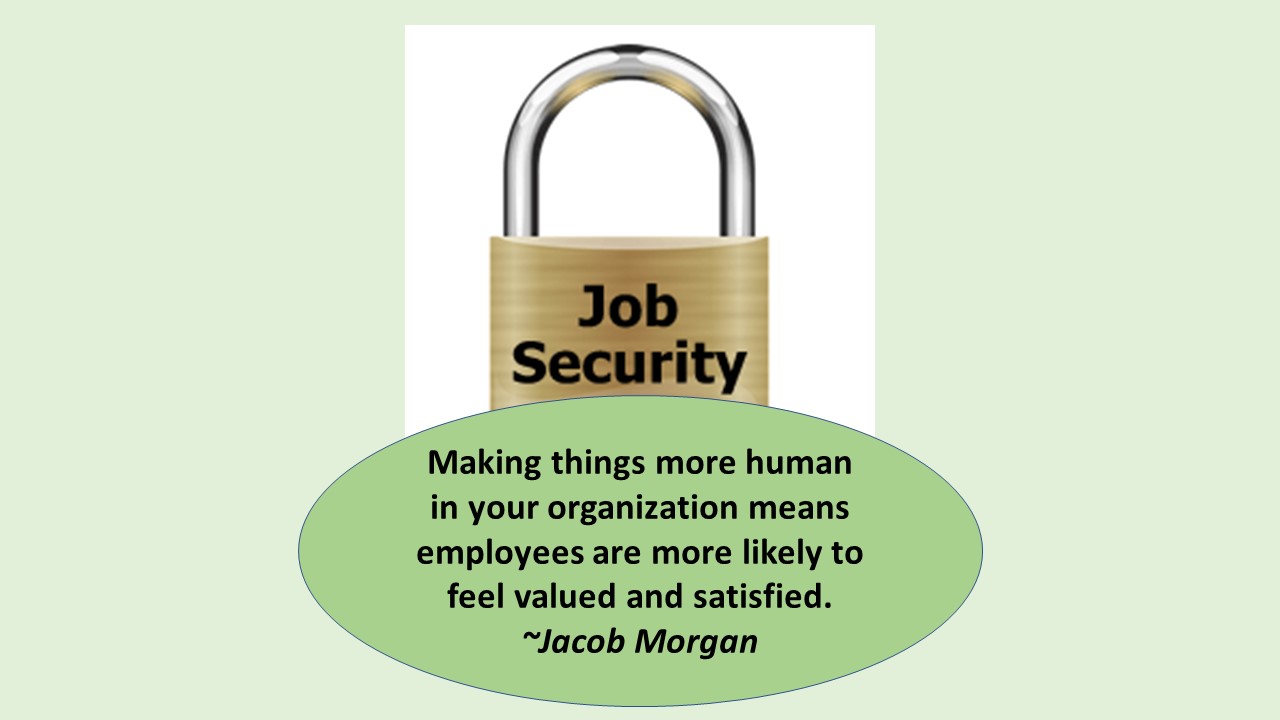By Thomas Davis, CRNA, MAE, Lt. Col, (ret)
A psychologically healthy workplace focuses importance on employee well-being, both mental and physical. The organizations that are most successful in providing psychological health for workers do so by making employees feel valued and the companies are rewarded with a highly engaged and motivated team as evidenced by increased productivity and client satisfaction. A study published in 2012 by the American Psychological Association found the following when comparing employers that value employees versus those that don’t:
- Workers who feel valued are more likely to give their best effort. (93% versus 33%)
- Workers who do not feel valued are more likely to seek new employment elsewhere. (50% versus 21%)
- Workers who feel valued are more likely to say good things about the employer. (85% versus 19%)
It is not empowering, nor does it provide a sense of self-esteem to know that you can easily be replaced and it won’t make a difference to your team. In contrast, a worker’s self-worth is enhanced when he/she senses being an essential part of the team. As identified in the APA study, motivation, engagement and productivity are tied to a worker’s sense of being valued by the organization. Letting employees know that they are valued by both you and the organization stimulates each individual worker to put full effort into every project. Here are ways to create a psychologically healthy workplace where workers feel as if they are important members of the organization.
Recognize and showcase talent
Tie assignments to strengths and let people know why you chose them for the task. Avoid routinely dumping tasks on those who you feel most capable because it will generate a feeling of being used. Instead, discuss the objective and let the person know that he/she was chosen because you recognize particular strengths that could be showcased on the project. For example, tell the person, “Last week you did an excellent job on… and your talent is perfect for this job.” Or “you seem to have an interest in… and I think this job would provide an opportunity to further develop your skills in that area.” Making it personal while recognizing individual strengths conveys a sense of worth for the worker.
Share positive feedback from all sources
It’s great to get praise from the boss; however, it is equally important for workers to know that clients and colleagues also appreciate their work. Go beyond giving awards and recognition at a team meeting; tell how the work had a positive impact for clients or colleagues. Client surveys often generate positive comments about individual team members. Posting kudos for all to see sends the message that the work done by the individual is appreciated beyond the workplace.
Offer challenging work
Routine work keeps the wheels turning and is important for achieving the mission of the organization; however, it may not be stimulating. Mix challenging assignments with routine work to keep it stimulating and to promote professional growth. Identify ways to improve workflow and challenge a worker to develop and implement a plan to achieve it. Encourage creative thinking, provide resources and check in on a pre-planned timeline. Workers who feel ownership will put full effort into a project.
Listen to your employees
A common theme expressed by workers in low engagement environments is the perception that they are not heard; many employees say that they were never asked for their opinions. Asking for opinions, listening to understand and then following up by putting ideas into action sends the message that team members are valued. Rather than using group meetings to read announcements, introduce a topic and then spend the time listening to the comments and concerns arising from those doing the grass roots work.
Frequent two-way feedback
The annual performance review looks in the rear-view mirror rather than looking over the horizon and motivating workers to move ahead. Instead, giving frequent feedback (bi-weekly at a minimum) keeps lines of communication open, projects on track and gives tangible evidence that you recognize and value work that is currently being done. Showing real time interest in things that are important to the members of our team conveys that you each person as an individual.
Affirming the strengths of every member of the team in a manner creates a sense that he/she is a valuable member of the group produces psychological security and will pay dividends for the organization. Workers who feel secure in their role and appreciated by both their employer and their colleagues have higher morale and are more engaged in the jobs they perform. The organization reaps the benefit of improved client/customer satisfaction scores…a win/win for all.
Thomas Davis is a noted leader, educator, speaker and clinical anesthetist.
Build a preferred workplace. Join Tom and a group of healthcare leaders for the values-based leadership webinar. Click here for information.
